-
 bitcoin
bitcoin $87959.907984 USD
1.34% -
 ethereum
ethereum $2920.497338 USD
3.04% -
 tether
tether $0.999775 USD
0.00% -
 xrp
xrp $2.237324 USD
8.12% -
 bnb
bnb $860.243768 USD
0.90% -
 solana
solana $138.089498 USD
5.43% -
 usd-coin
usd-coin $0.999807 USD
0.01% -
 tron
tron $0.272801 USD
-1.53% -
 dogecoin
dogecoin $0.150904 USD
2.96% -
 cardano
cardano $0.421635 USD
1.97% -
 hyperliquid
hyperliquid $32.152445 USD
2.23% -
 bitcoin-cash
bitcoin-cash $533.301069 USD
-1.94% -
 chainlink
chainlink $12.953417 USD
2.68% -
 unus-sed-leo
unus-sed-leo $9.535951 USD
0.73% -
 zcash
zcash $521.483386 USD
-2.87%
How to mine Bitcoin SV
Solo mining Bitcoin SV offers greater rewards but faces challenges, like needing specialized hardware and enduring high difficulty, requiring meticulous consideration of costs and benefits.
Jan 10, 2025 at 01:01 am
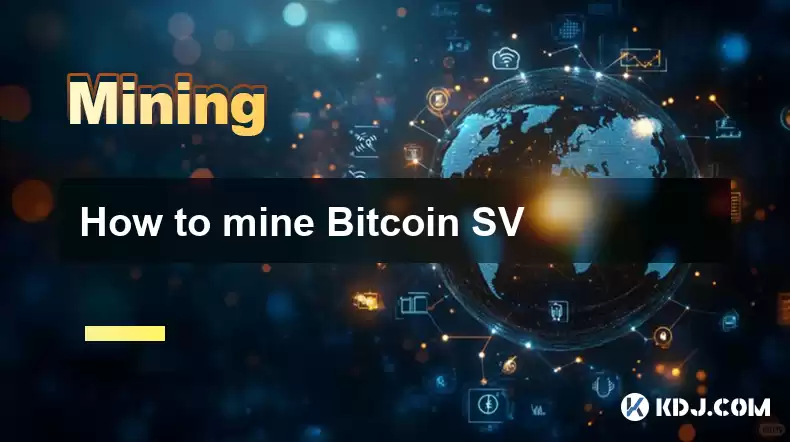
- Bitcoin SV is a cryptocurrency that uses the SHA-256 algorithm, the same as Bitcoin.
- Mining Bitcoin SV involves solving complex mathematical problems to verify transactions and add them to the blockchain.
- There are three main methods for mining Bitcoin SV: solo mining, pool mining, and cloud mining.
- The profitability of mining Bitcoin SV depends on several factors, such as the difficulty of the network, the price of Bitcoin SV, and the efficiency of the mining equipment.
- Before starting to mine Bitcoin SV, it is important to consider the costs and benefits involved.
How to Mine Bitcoin SV: A Step-by-Step Guide
1. Choose a Mining MethodThere are three main methods for mining Bitcoin SV:
- Solo mining involves using your own computing power to mine blocks. This method is the most difficult and requires specialized hardware.
- Pool mining involves joining a group of miners and sharing the rewards based on the amount of work each miner contributes. This method is less difficult than solo mining but may result in lower rewards.
- Cloud mining involves renting computing power from a cloud mining provider. This method is the easiest but also the most expensive.
The most important factor in determining the profitability of mining Bitcoin SV is the efficiency of your mining equipment. The higher the efficiency, the more blocks you will be able to mine and the more rewards you will earn.
There are two main types of mining hardware:
- ASIC miners are specialized computers that are designed for mining cryptocurrencies. They are more efficient than GPUs but also more expensive.
- GPUs (graphics cards) can also be used to mine Bitcoin SV, but they are less efficient than ASIC miners.
Once you have your mining hardware, you need to install mining software. This software will connect you to the Bitcoin SV network and allow you to solve the complex mathematical problems that are required to verify transactions and mine blocks.
There are several different mining software programs available, such as:
- CGMiner
- BFGMiner
- MultiMiner
If you are not solo mining, you will need to join a mining pool. Mining pools combine the resources of multiple miners to increase the chances of finding a block and earning a reward.
There are several different mining pools available, such as:
- Slush Pool
- AntPool
- F2Pool
Once you have your mining hardware, software, and mining pool (if applicable), you can start mining Bitcoin SV. Simply run your mining software and it will begin solving the complex mathematical problems that are required to verify transactions and mine blocks.
6. Monitor Your Mining PerformanceOnce you have started mining, it is important to monitor your performance to ensure that your equipment is running efficiently. You can use a mining pool dashboard or a third-party mining monitoring tool to track your progress.
7. Withdraw Your RewardsWhen you mine a block, you will earn a reward in Bitcoin SV. You can withdraw your rewards to a Bitcoin SV wallet or exchange them for other cryptocurrencies or fiat currencies.
FAQs:Q: How much does it cost to mine Bitcoin SV?A: The cost of mining Bitcoin SV depends on several factors, such as the cost of your mining equipment, the cost of electricity, and the difficulty of the network.
Q: How long does it take to mine Bitcoin SV?A: The time it takes to mine Bitcoin SV depends on the difficulty of the network and the efficiency of your mining equipment. The difficulty of the network is constantly adjusting, so the time it takes to mine a block may vary.
Q: How can I tell if my mining equipment is running efficiently?A: You can use a mining pool dashboard or a third-party mining monitoring tool to track the performance of your mining equipment. These tools will provide you with information such as your hash rate, power consumption, and efficiency.
Disclaimer:info@kdj.com
The information provided is not trading advice. kdj.com does not assume any responsibility for any investments made based on the information provided in this article. Cryptocurrencies are highly volatile and it is highly recommended that you invest with caution after thorough research!
If you believe that the content used on this website infringes your copyright, please contact us immediately (info@kdj.com) and we will delete it promptly.
- Crypto Coaster: Bitcoin Navigates Intense Liquidation Hunt as Markets Reel
- 2026-02-01 00:40:02
- Bitcoin Eyes $75,000 Retest as Early February Approaches Amid Shifting Market Sentiment
- 2026-02-01 01:20:03
- Don't Miss Out: A Rare £1 Coin with a Hidden Error Could Be Worth a Fortune!
- 2026-02-01 01:20:03
- Rare £1 Coin Error Could Be Worth £2,500: Are You Carrying a Fortune?
- 2026-02-01 00:45:01
- Navigating the Crypto Landscape: Risk vs Reward in Solana Dips and the Allure of Crypto Presales
- 2026-02-01 01:10:01
- NVIDIA CEO Jensen Huang's Take: Crypto as Energy Storage and the Evolving Role of Tech CEOs
- 2026-02-01 01:15:02
Related knowledge
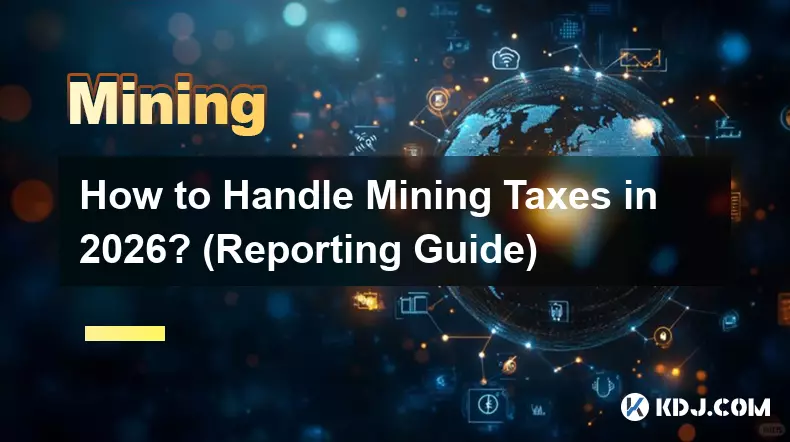
How to Handle Mining Taxes in 2026? (Reporting Guide)
Feb 01,2026 at 01:39am
Tax Classification of Mining Rewards1. Cryptocurrency mining rewards are treated as ordinary income at the fair market value on the date of receipt. 2...
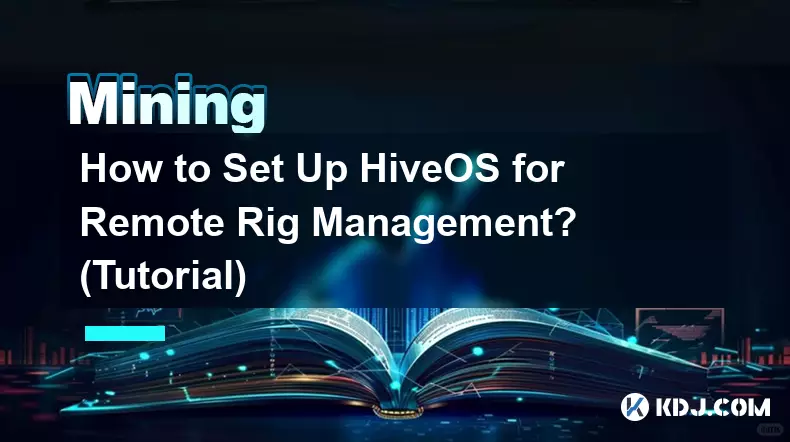
How to Set Up HiveOS for Remote Rig Management? (Tutorial)
Feb 01,2026 at 12:39am
Understanding HiveOS Fundamentals1. HiveOS is a Linux-based operating system specifically engineered for GPU mining rigs, offering lightweight perform...
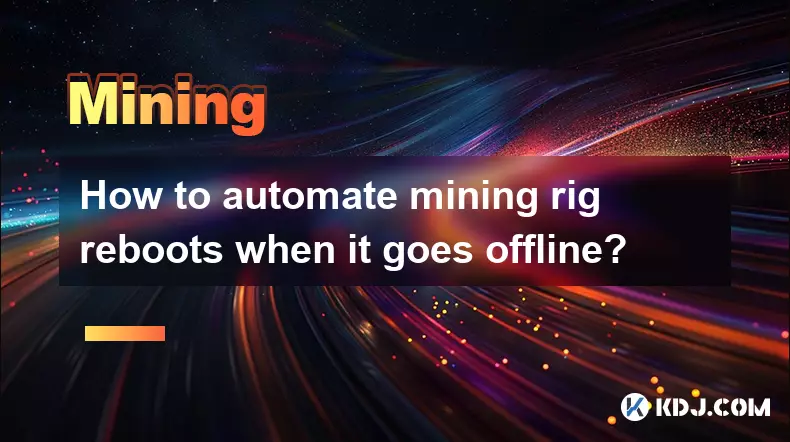
How to automate mining rig reboots when it goes offline?
Jan 23,2026 at 11:00pm
Monitoring System Integration1. Deploy a lightweight agent on the mining rig’s host OS that continuously reports hash rate, GPU temperature, and pool ...
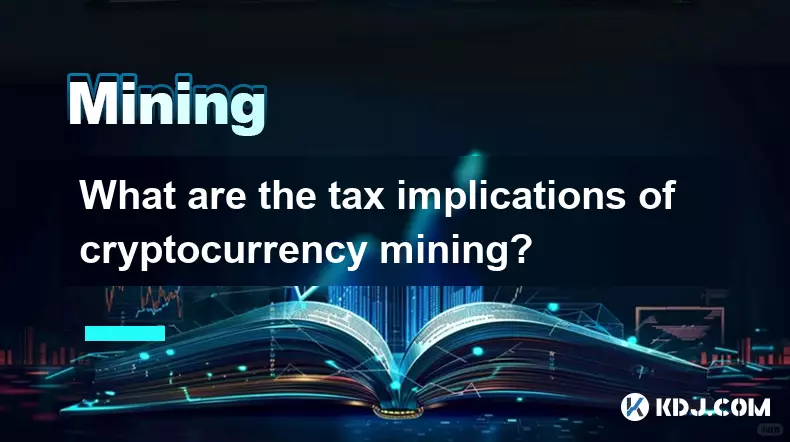
What are the tax implications of cryptocurrency mining?
Jan 23,2026 at 02:40am
Tax Treatment of Mining Rewards1. Cryptocurrency received as a reward for mining is treated as ordinary income by the IRS at the fair market value on ...
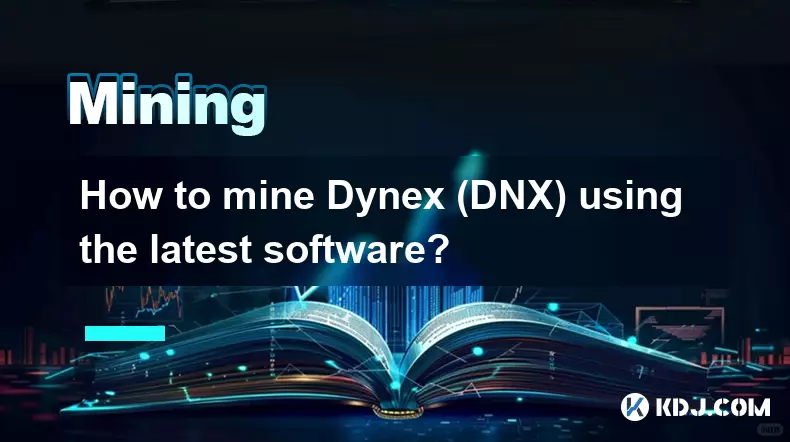
How to mine Dynex (DNX) using the latest software?
Jan 22,2026 at 10:00am
Understanding Dynex Mining Fundamentals1. Dynex (DNX) operates on a proof-of-work consensus mechanism optimized for neuromorphic computing workloads, ...
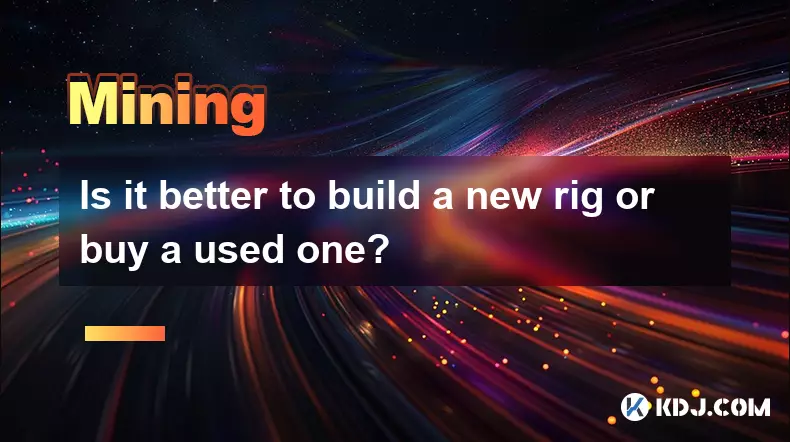
Is it better to build a new rig or buy a used one?
Jan 24,2026 at 10:20pm
Cost Efficiency Analysis1. New mining rigs come with manufacturer warranties, typically covering components for one to three years. This assurance red...

How to Handle Mining Taxes in 2026? (Reporting Guide)
Feb 01,2026 at 01:39am
Tax Classification of Mining Rewards1. Cryptocurrency mining rewards are treated as ordinary income at the fair market value on the date of receipt. 2...

How to Set Up HiveOS for Remote Rig Management? (Tutorial)
Feb 01,2026 at 12:39am
Understanding HiveOS Fundamentals1. HiveOS is a Linux-based operating system specifically engineered for GPU mining rigs, offering lightweight perform...

How to automate mining rig reboots when it goes offline?
Jan 23,2026 at 11:00pm
Monitoring System Integration1. Deploy a lightweight agent on the mining rig’s host OS that continuously reports hash rate, GPU temperature, and pool ...

What are the tax implications of cryptocurrency mining?
Jan 23,2026 at 02:40am
Tax Treatment of Mining Rewards1. Cryptocurrency received as a reward for mining is treated as ordinary income by the IRS at the fair market value on ...

How to mine Dynex (DNX) using the latest software?
Jan 22,2026 at 10:00am
Understanding Dynex Mining Fundamentals1. Dynex (DNX) operates on a proof-of-work consensus mechanism optimized for neuromorphic computing workloads, ...

Is it better to build a new rig or buy a used one?
Jan 24,2026 at 10:20pm
Cost Efficiency Analysis1. New mining rigs come with manufacturer warranties, typically covering components for one to three years. This assurance red...
See all articles





















![THIS IS THE HARDEST COIN TO GET [POLY DASH] THIS IS THE HARDEST COIN TO GET [POLY DASH]](/uploads/2026/01/31/cryptocurrencies-news/videos/origin_697e0319ee56d_image_500_375.webp)




















































